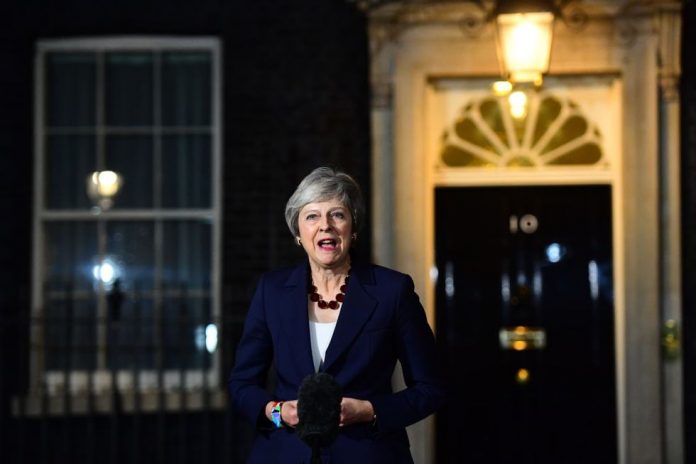Theresa May’s Cabinet has agreed on a draft Brexit withdrawal agreement. Speaking outside 10 Downing Street following a five-hour meeting on Wednesday night, the Prime Minister said the choices had been “difficult” but the deal was “the best that could be negotiated”.
However, it’s a rocky road ahead. May still needs the backing of parliament to get the deal through the House of Commons and, on Thursday, the situation got even more chaotic.
Senior members of the Cabinet – including Work and Pensions Secretary Esther McVey and, more awkwardly, Brexit Secretary Dominic Raab – started handing in their resignations. And things went from bad to worse when Tory MP Jacob Rees-Mogg, a leading Brexiteer, called for a vote of no confidence in May.
According to parliament’s official website, it is a motion that is moved in the House of Commons, with the wording: ‘That this House has no confidence in HM Government’. Essentially, it’s a vote that is triggered when MPs have lost faith in their leader.
For the motion to happen, 48 Conservative MPs – that’s 15% of the party – must write to the chairman of the 1922 Committee, made up of backbench Tories, who will decide on whether to hold the vote.
If MPs call for a vote of no confidence in May, she would need over half of her party to support her to remain in power. With this support, there could not be another confidence vote in her leadership for another year, Sky News notes. If she doesn’t receive the necessary backing, May would have to resign. This would trigger a contest for the next leader.
Potentially. When David Cameron stepped down after the Brexit vote in 2016, the process of choosing a new leader was left up to MPs. (Although when one of the final candidates, Andrea Leadsom, withdrew, May was made Prime Minister without having been elected by her party members.) However, if a vote of no confidence is agreed to and a new government cannot be formed within a period of 14 days, parliament is dissolved and an early General Election is triggered, parliament’s website states.
Labour leader Jeremy Corbyn is currently at the top of the bookmaker’s list, overtaking Boris Johnson who is third favourite. After Dominic Raab stepped down as Brexit Secretary on Thursday, he has shot up to second in the list of contenders, with political spectators saying he is positioning himself for leadership.
Meanwhile, Rees-Mogg has denied he is after the job. Addressing his letter of not confidence outside parliament on Thursday afternoon, he told reporters: “I am not offering my name as leader. This is nothing to do with me. This is about not having confidence in the current leader and believing that the deal simply does not work.”








